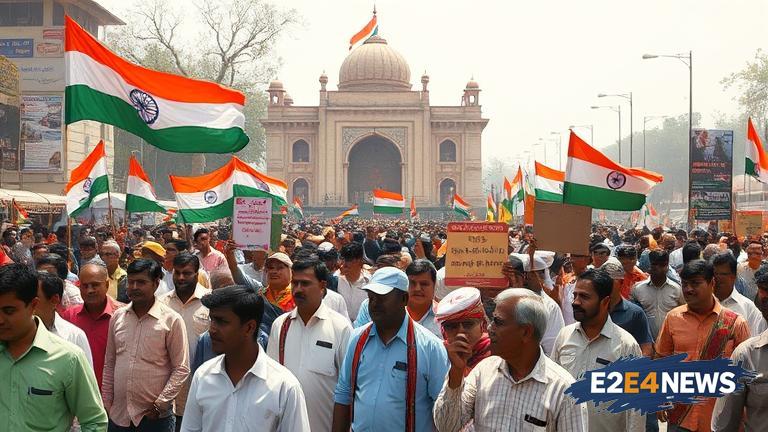A nationwide strike was observed in India on July 2025, as workers from various sectors came together to protest against the economic reforms introduced by Prime Minister Narendra Modi’s government. The strike, which lasted for a day, was called by several trade unions and was supported by millions of workers across the country. The protesters were demanding a rollback of the government’s economic policies, which they claim have led to widespread unemployment, price rise, and exploitation of workers. The strike affected normal life in many parts of the country, with shops, banks, and public transport remaining closed. The protesters also blocked roads and railways, causing disruptions to traffic and train services. The government, however, remained firm on its stance, saying that the reforms were necessary to boost economic growth and attract foreign investment. The strike was largely peaceful, but there were reports of clashes between protesters and police in some parts of the country. The trade unions have threatened to intensify their agitation if the government does not heed to their demands. The strike has also received support from opposition parties, who have been critical of the government’s economic policies. The government has, however, accused the opposition of politicizing the issue and trying to destabilize the economy. The strike has highlighted the growing discontent among workers and the general public against the government’s economic policies. The government will have to take urgent measures to address the concerns of the workers and the public, or risk facing further protests and agitations. The strike has also raised questions about the government’s ability to implement its economic reforms, which have been a key part of its agenda. The government will have to find a balance between its economic goals and the concerns of the workers and the public. The strike has been seen as a major challenge to the government’s authority, and it remains to be seen how the government will respond to the situation. The opposition parties have called for a rollback of the government’s economic policies, and have demanded that the government engage in talks with the trade unions to find a solution. The government has, however, refused to budge, saying that it will not be intimidated by the protests. The strike has also had an impact on the country’s economy, with many businesses remaining closed and transport services disrupted. The government will have to take urgent measures to restore normalcy and prevent further disruptions to the economy.
